Signs of teething
Signs of teething

Chewing
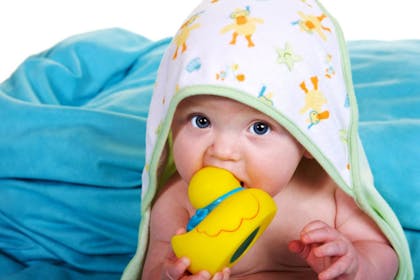
Look out for your baby hungrily gnawing at anything and everything she can get into her mouth (her own hands and fingers included). She may have found that sinking her gums into something hard eases the discomfort.
Excessive dribbling
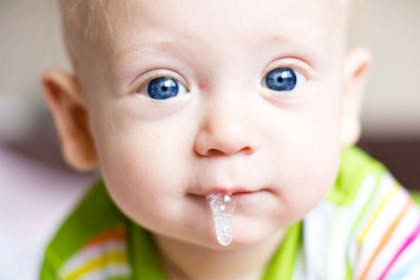
While excessive dribbling can be one of the symptoms of teething, this isn't always necessarily the cause - bear in mind that it's also produced as part of your baby's normal development as she explores objects in her mouth, but doesn't yet have the skill to swallow it.
Red cheeks

Red, swollen gums, and red, hot cheeks are a classic sign your baby's teething.
FREE NEWBORN NAPPIES
Sleeplessness at night
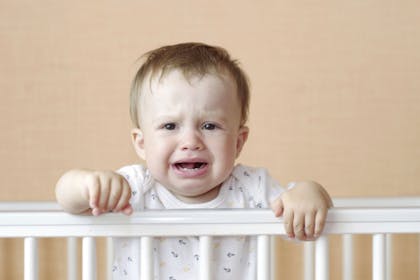
Sleeplessness at night often occurs with teething. Our guide to managing nighttime teething might help.
Irritable with a raised temperature
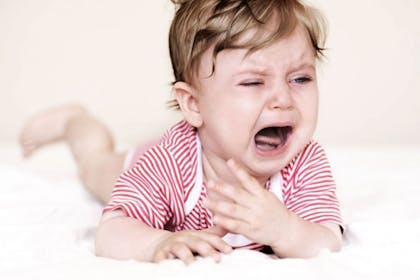
Finding your child to be generally irritable with a raised temperature are classic signs of teething. If you're worried about something like a high fever, be sure to get it checked out by a medical expert.
Loose nappies/nappy rash
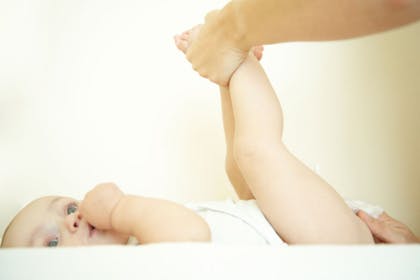
Loose bowels are thought to be caused when excessive saliva passes through the tummy.
One theory about nappy rash is that it's caused by of all that extra saliva, which makes the stools acidic. There's also a theory that excessive dribbling can lead to a loss of fluids, which makes the urine more concentrated.

Loss of appetite
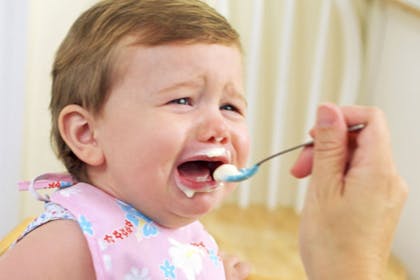
Your child may have a loss of appetite, or even a refusal to feed when teething.
Puffy gums

Before a new tooth erupts, it can cause a red and swollen area on a baby's gums. The gum can even bulge with the emerging tooth, which you can see faintly beneath the skin.
Biting your boobs!

A teething baby, whose gums are tender, often likes to bite and chew and might do so while breastfeeding.
Tugging on their ears
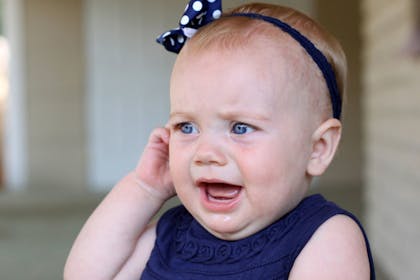
Ear pulling: the pain that teething causes in the jaw can transfer to the ear canal, and a baby will often pull on her ears in a bid to alleviate it.
More about your baby
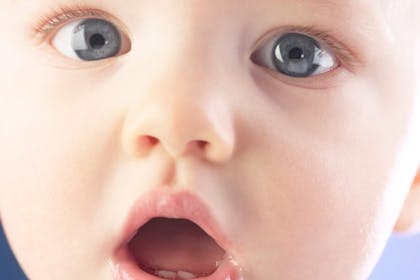
This is made more confusing by the fact that teething can often start months before any teeth begin to appear.
Take a look at our gallery for classic signs your child may be teething.
Need advice?
Our health visitors and nursery nurses are online Monday to Friday evenings to answer your queries on feeding, sleep and child health.





